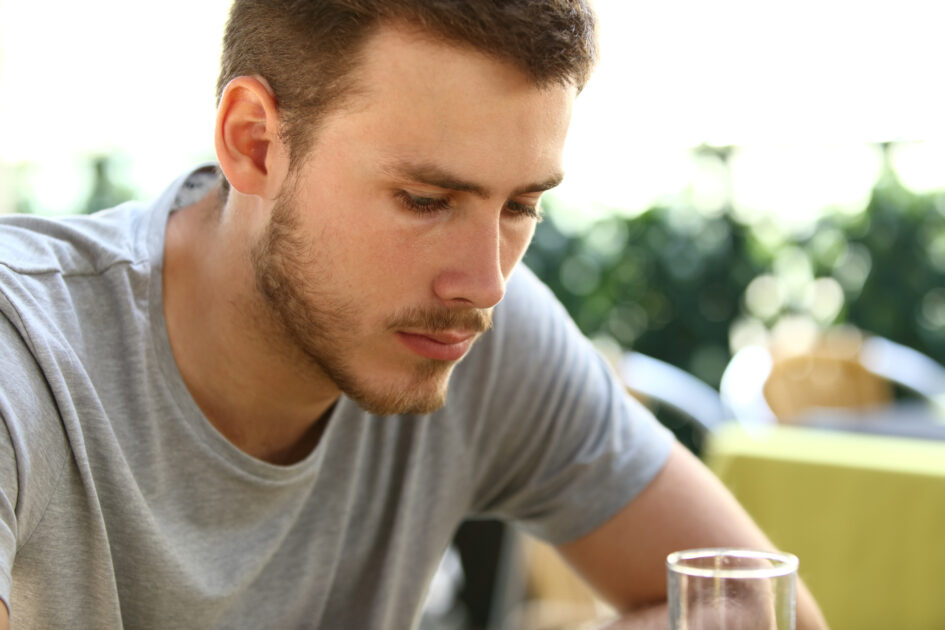How alcohol can impact on our mental health
Alcohol can be a cause of mental health problems, as well as something that can make already existing mental health issues worse.

Understanding the impact alcohol has on your mental health can help you make decisions around your alcohol use when you have a mental health issue.
Is alcohol bad for my mental health?
In order to understand why alcohol can have a negative impact on your mental health, it helps to know what happens to your brain when you drink.
What happens to the brain when we drink alcohol?
Alcohol is a depressant, and it affects the levels of certain “happiness chemicals” like serotonin and dopamine. As these levels change, you might get an initial boost of happiness when you first start drinking. However, the next day you’ll have less of these chemicals, and you’ll feel a lot worse.
Even though you might feel happier and more relaxed when you first start drinking, this can change the more you drink. As you continue you may begin to feel sad, angry, anxious, depressed or become aggressive.
Alcohol can make the symptoms of existing mental health problems worse
If you have an existing mental health problem, using alcohol to cope can make these issues worse.
Some people who suffer from anxiety or stress may use alcohol as a way of coping. Initially this might seem to help because alcohol depresses the central nervous system and might make you feel more relaxed. However, in the long run this can create more anxiety and stress. As the alcohol leaves the body, stress and anxiety can actually intensify due to the impact of the alcohol on the brain.
People who drink heavily are also more likely to experience symptoms of depression, and alcohol can also intensify negative emotions. Mental health issues can become harder to manage if you use alcohol as a way of dealing with them. If you become dependent on alcohol, it can make recovering from a mental illness much more difficult.
Alcohol can prevent you from developing healthy coping mechanisms
If you’re suffering with a mental health issue, it’s important to develop healthy coping skills to help you deal with your problems. This can include talking to a friend, using breathing or other stress management techniques to calm you down, or going to a professional for help. These coping skills need to be worked on, but using alcohol can weaken these skills.
The more you turn to alcohol to cope, the less you’ll be able to cope without it. This can lead to a situation where a drink is the first thing you turn to when you start to feel overwhelmed.
Alcohol can lead to a cycle of dependence
When you turn to alcohol as a way of dealing with your mental health problems, there is a chance you could become dependent on alcohol. If you are using alcohol as a solution to your problems, whether that’s stress, anxiety, boredom, or anything else, you risk becoming psychologically dependent on alcohol.
How alcohol dependence happens
As alcohol changes the chemistry in the brain, the brain can begin to associate alcohol with certain feelings. Alcohol releases more of the chemical dopamine, which is released when we feel pleasure. The more you drink the more the brain will associate alcohol with pleasure, and this can lead to addiction. You might become reliant on alcohol to feel any sort of pleasure at all.
Alcohol also releases high levels of endorphins which make us feel good. However, over time high levels of dopamine and endorphins can actually lead to symptoms of depression and fatigue, or make you aggressive and delusional.
Alcohol is a risk factor for suicide and self harm
According to the World Health Organisation (WHO), the risk of suicide is 8 times greater when a person has been abusing alcohol compared to when they have not.
There are many factors that contribute to suicide, but alcohol is an important risk factor.
- In Ireland, alcohol is a factor in more than half of completed suicides
- Alcohol is also a factor in 1 in every 3 cases of self harm in Ireland
- Because alcohol lowers inhibitions, people may be more likely to act on thoughts of self harm or suicide that they might not have acted on if they were sober
- It’s been estimated that reducing the rate of heavy drinking among Irish adolescents could result in a 17% drop in rates of deliberate self harm
If you’re concerned about your drinking, talk to someone you trust.






